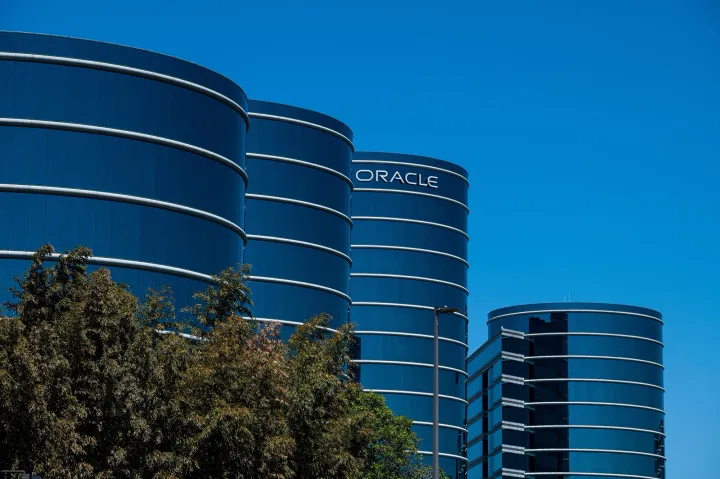AI’s $380 Billion Spending Frenzy: Which Tech Giants Are Winning and Who’s Falling Behind

The AI Gold Rush Keeps Getting Bigger
The world’s biggest tech companies are spending more than ever before on artificial intelligence — and they’re not slowing down. After a massive earnings season, Alphabet, Meta, Microsoft, and Amazon all sent a clear message to Wall Street: AI is the future, and they’re willing to pay for it.
Together, these four companies are set to spend over $380 billion this year on capital expenditures, most of it going toward data centers, chips, and AI infrastructure. Microsoft’s spending projections even stretch into 2026, signaling a long-term race to dominate the AI era.
But as this AI arms race heats up, investors are starting to ask hard questions: Can these companies really turn their huge AI bets into lasting profits? Or are we watching a tech bubble forming in real time?
AI Spending Reaches Historic Highs
The surge in AI spending isn’t just about new servers and chips — it’s about building the digital backbone for a new kind of computing. Tech giants say demand for AI services is “virtually limitless,” driving a once-in-a-generation build-out of infrastructure.
Even so, some industry observers are raising red flags. Energy limits, chip shortages, and concerns over real-world profitability have led some analysts to warn that the current boom might not be sustainable.
Then there’s OpenAI, which has blown past even the biggest tech spenders. Backed by Microsoft and in partnership with companies like Nvidia, Oracle, and Broadcom, OpenAI has announced around $1 trillion in infrastructure deals — dwarfing the rest of the field.
Amazon Soars on AI Confidence
Among the “Big Four,” Amazon was the standout this quarter. The company beat expectations on both revenue and earnings, and investors loved what they heard about its AI plans.
Amazon’s capital expenditure forecast jumped to $125 billion, up from $118 billion, with more increases planned for 2026. CFO Brian Olsavsky told analysts that Amazon sees AI as a “massive opportunity” that will deliver strong returns over time.
That optimism helped push Amazon’s stock higher after its earnings call. A big part of that confidence comes from Amazon Web Services (AWS), which remains the world’s largest cloud provider and a key player in powering the AI revolution.
Alphabet’s Strong Quarter Calms Investors
Alphabet (Google’s parent company) also delivered strong results. The company raised its capital spending outlook to between $91 billion and $93 billion, up from an earlier range of $75 billion to $85 billion.
That boost, along with an earnings beat, sent Alphabet shares up 2.5%. Analysts see Google’s cloud business — which grew 34% last quarter — as a reliable profit engine. Unlike Meta, Alphabet’s AI investments are already tied directly to clear revenue streams such as search, advertising, and enterprise cloud services.
Analysts at Oppenheimer praised Alphabet’s “predictable earnings” and said its AI investments look more sustainable than some of its peers.
Microsoft: Spending More, But Shares Slip
Despite another strong quarter, Microsoft’s stock fell about 3%. The company’s results easily beat expectations, but investors were spooked by the size of its upcoming AI investments.
CFO Amy Hood said that capital expenditures will accelerate in fiscal 2026, reversing previous guidance that spending would slow. Microsoft’s capex jumped 45% last year to $64.5 billion — and could hit roughly $94 billion next year when leases are included.
The company’s AI push is anchored in its Azure cloud platform, which saw revenue surge 40% in the most recent quarter. Microsoft is betting big that AI will keep driving growth, but some investors worry about whether profits can keep up with spending.
Meta’s AI Gamble Shakes Investor Confidence
While most tech giants were rewarded for their AI investments, Meta had a rough quarter. Despite beating expectations across the board, its stock plunged 11% — the biggest drop in three years.
Meta trimmed its 2024 capital spending forecast slightly to between $70 billion and $72 billion, down from a previous upper limit of $72 billion. But investors are worried about where that money is going.
Unlike Amazon, Microsoft, or Google, Meta doesn’t have a cloud business to monetize AI directly. Instead, CEO Mark Zuckerberg says AI helps the company by improving ad targeting and content recommendations.
Still, analysts aren’t convinced. Oppenheimer downgraded the stock, citing an “unknown revenue opportunity” in what Zuckerberg calls “superintelligence” — a new division focused on building next-generation AI systems. The firm warned that Meta’s heavy spending with unclear returns “mirrors” the company’s costly metaverse gamble from 2021–2022.
The concern isn’t just theoretical. Meta’s Reality Labs division, which builds AR and VR hardware, lost $4.4 billion last quarter on just $470 million in revenue — showing how quickly ambitious tech projects can drain cash.
The Cloud War Intensifies
At the heart of the AI boom lies the cloud computing battle. While AWS remains the biggest player, Microsoft Azure and Google Cloud are catching up fast — and both are growing faster.
In the latest quarter:
- AWS revenue grew 20% to $33 billion.
- Microsoft Azure revenue climbed 40%.
- Google Cloud sales jumped 34% to $15.15 billion.
Analysts at Cantor Fitzgerald said that clouds with “expansive service stacks like Microsoft” stand to benefit the most from the AI infrastructure boom. However, they also cautioned that total capex, including leases, could soar to $140 billion this year — a 58% jump from a year ago.
That number “reflects strong demand,” the analysts said, “but remains a concern as there appears no end in sight.”
The Big Picture: Betting on the Future
Despite investor jitters, the message from tech leaders is consistent — AI isn’t a short-term experiment; it’s the foundation of the next computing era. Each company is racing to build the infrastructure, data centers, and chips that will power AI for decades to come.
The spending may look staggering today, but if AI continues to reshape industries from healthcare to finance to entertainment, these early investments could pay off massively. For now, Wall Street’s biggest question is simple: which of these giants will actually see the return on their multi-billion-dollar bets first?
The AI boom has officially entered its high-stakes phase — and there’s no sign it’s slowing down.



